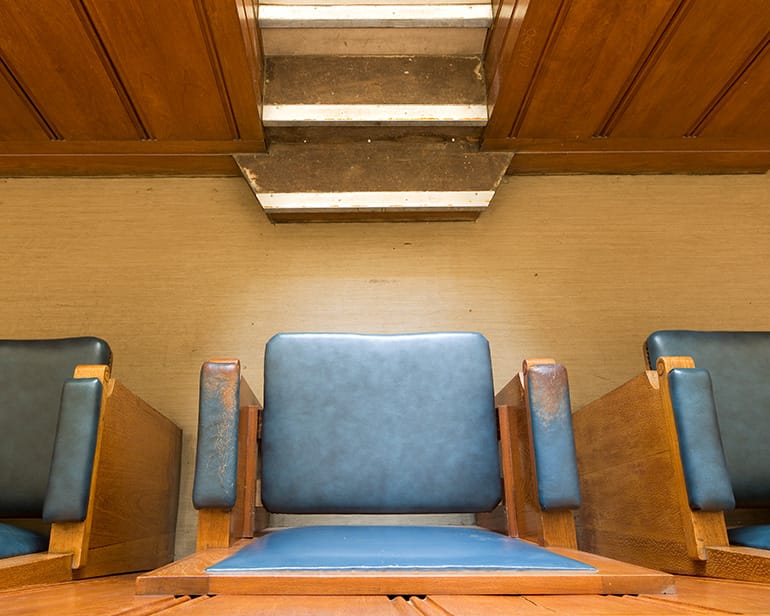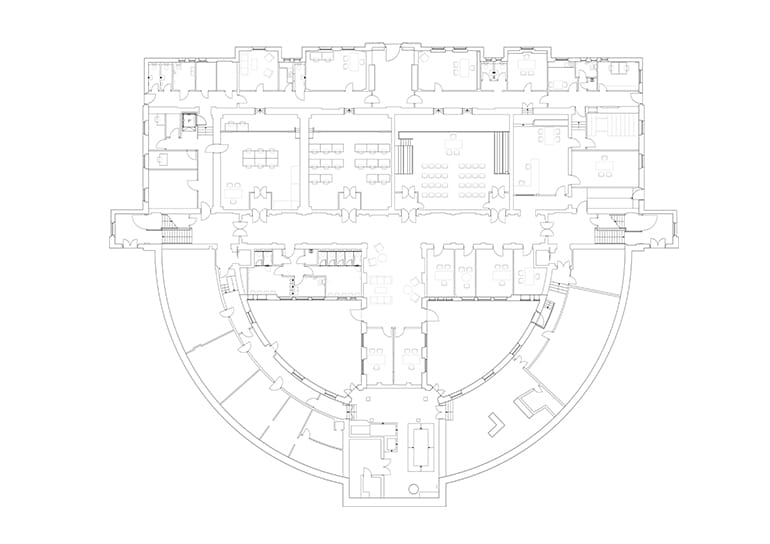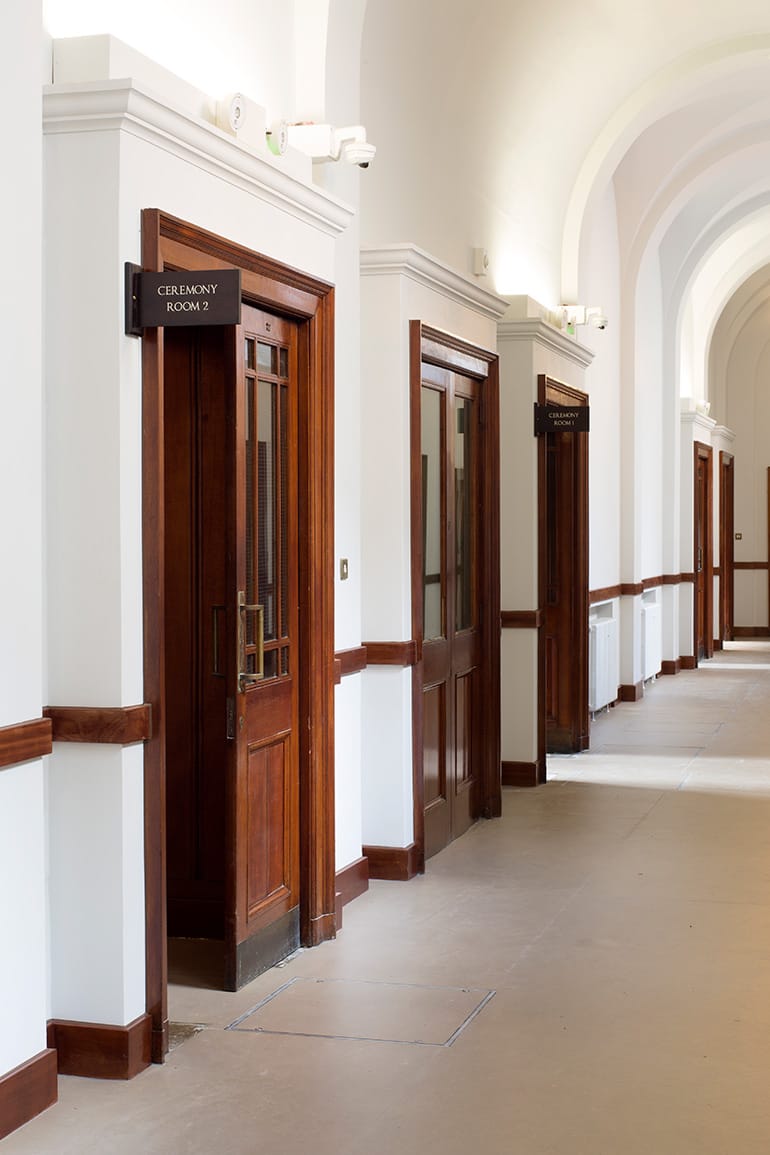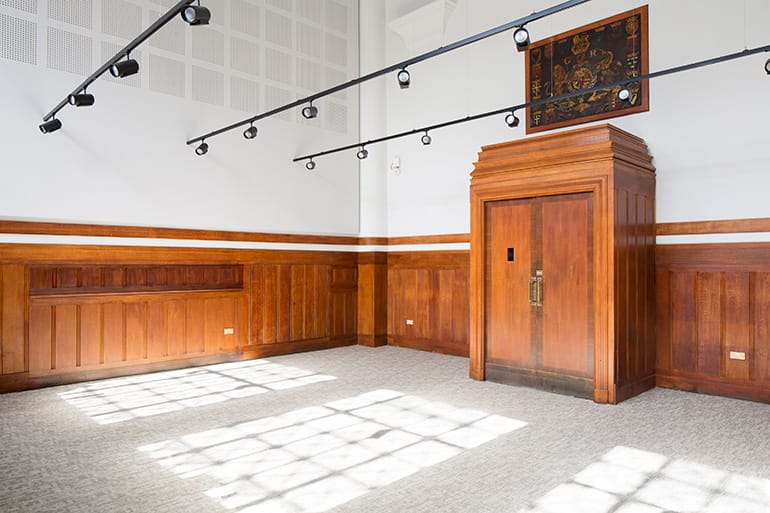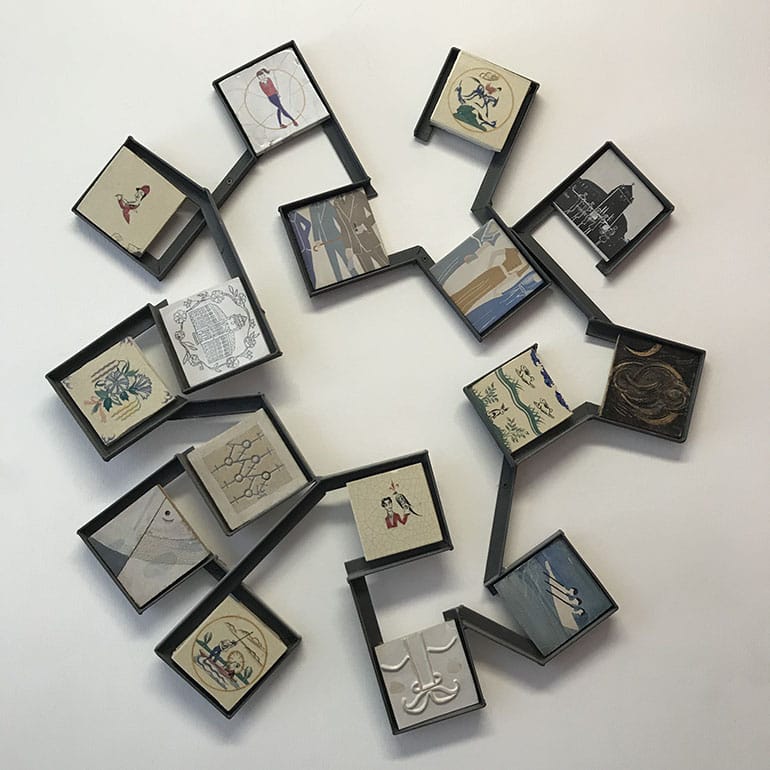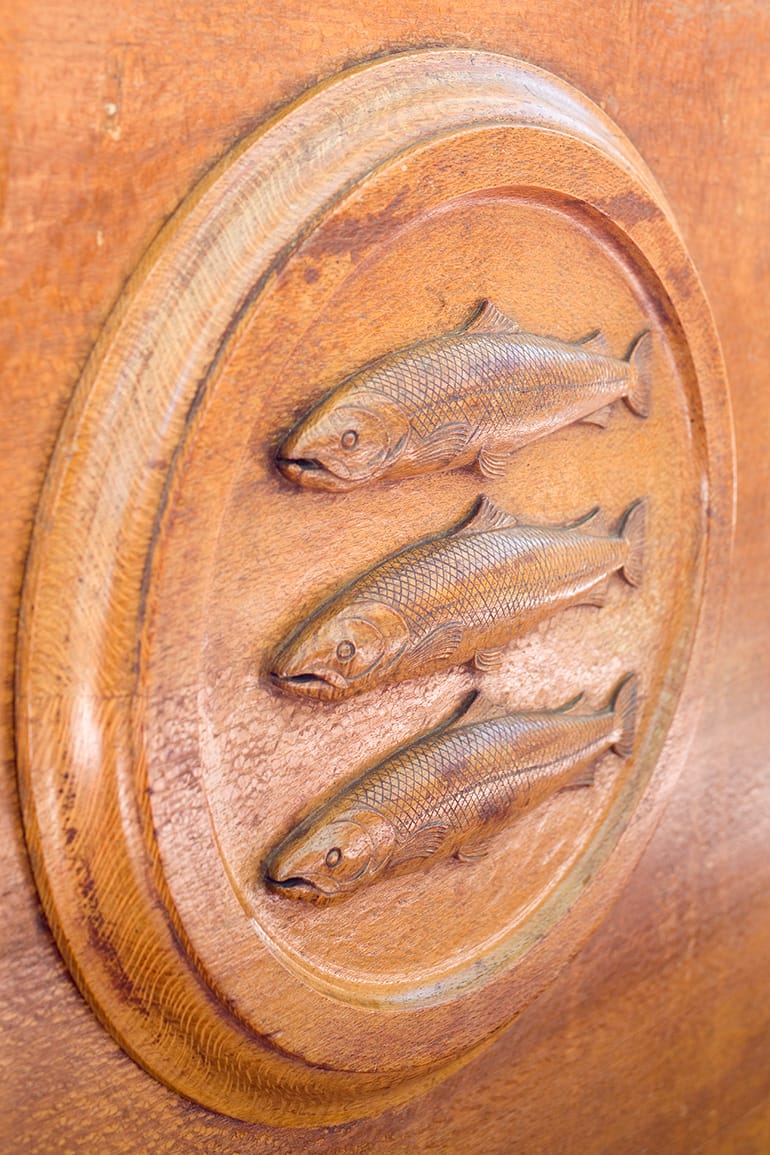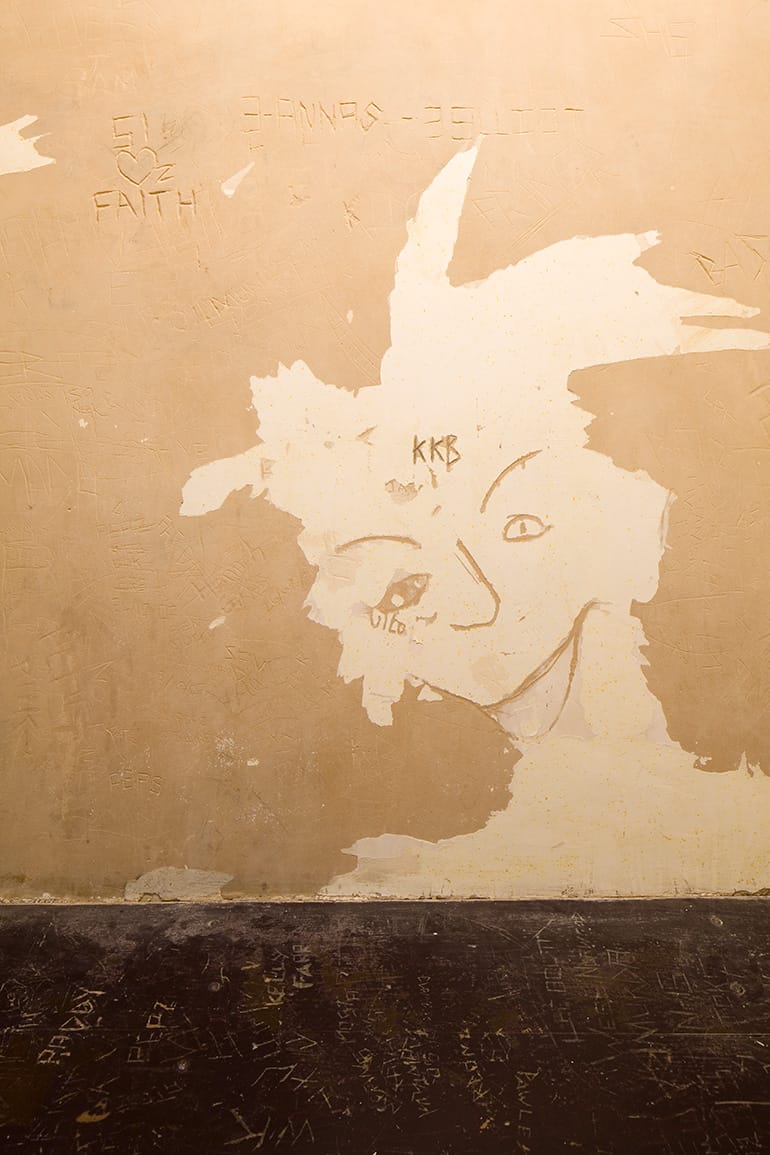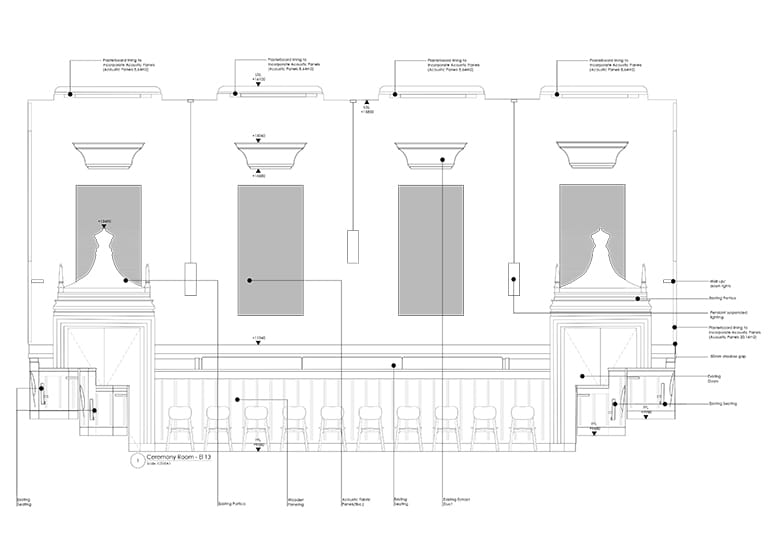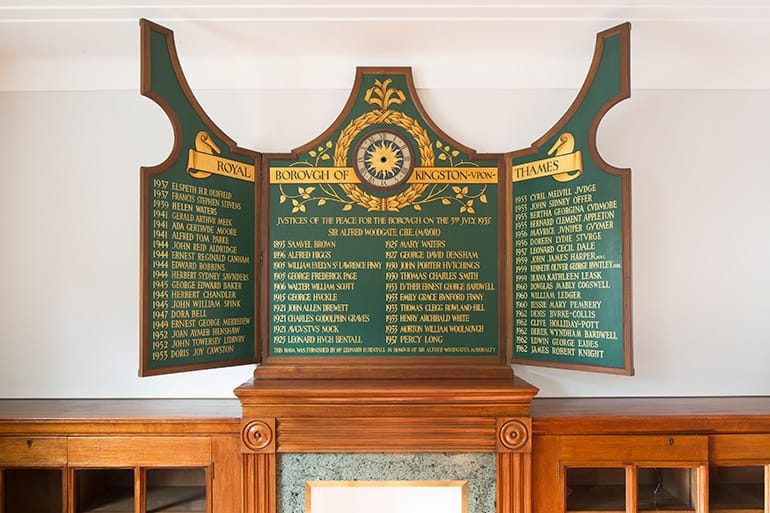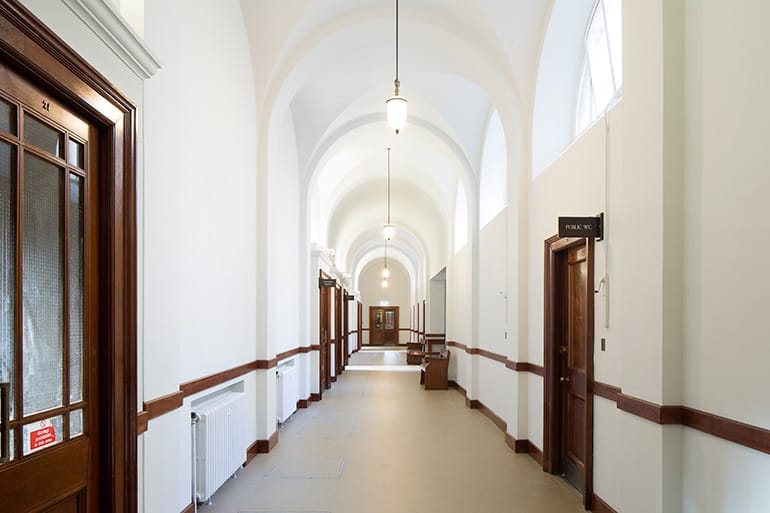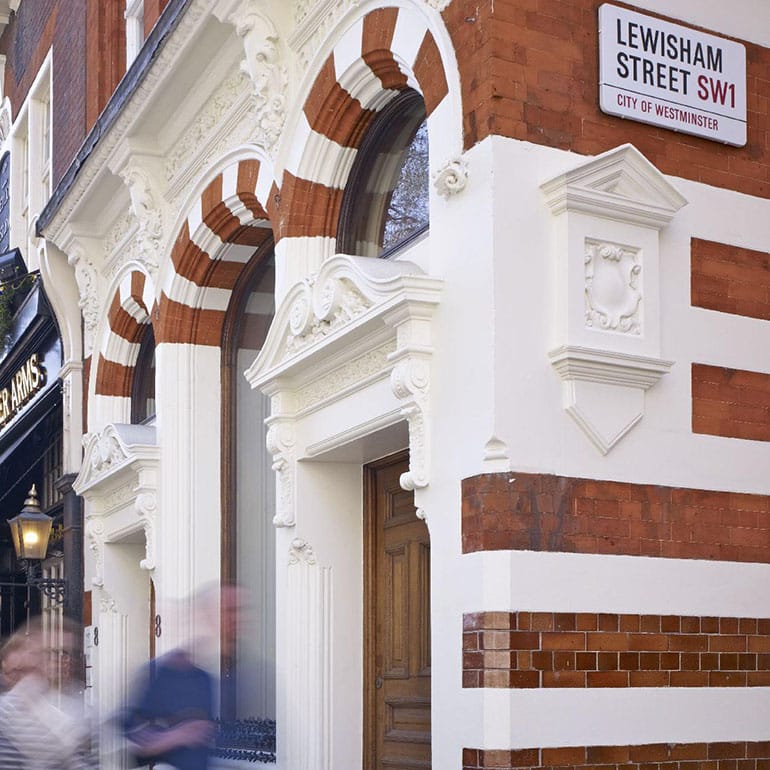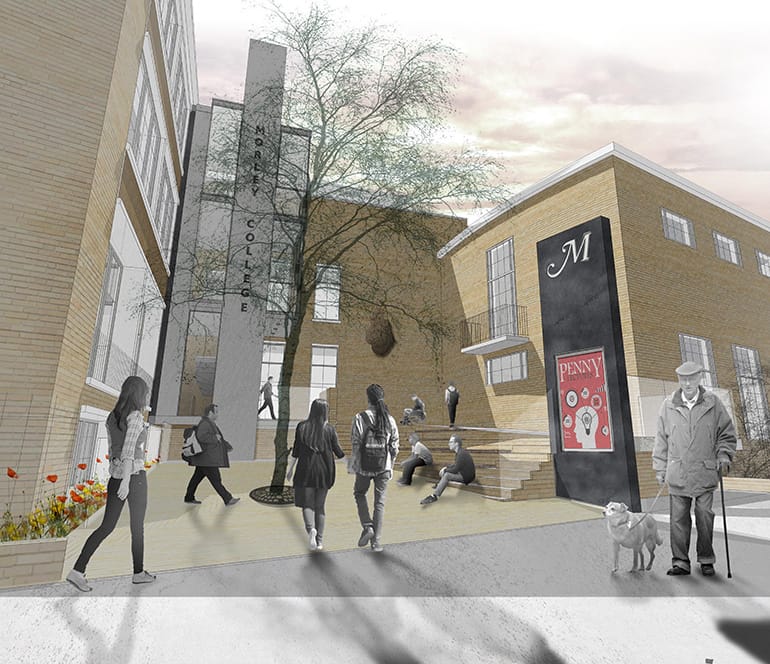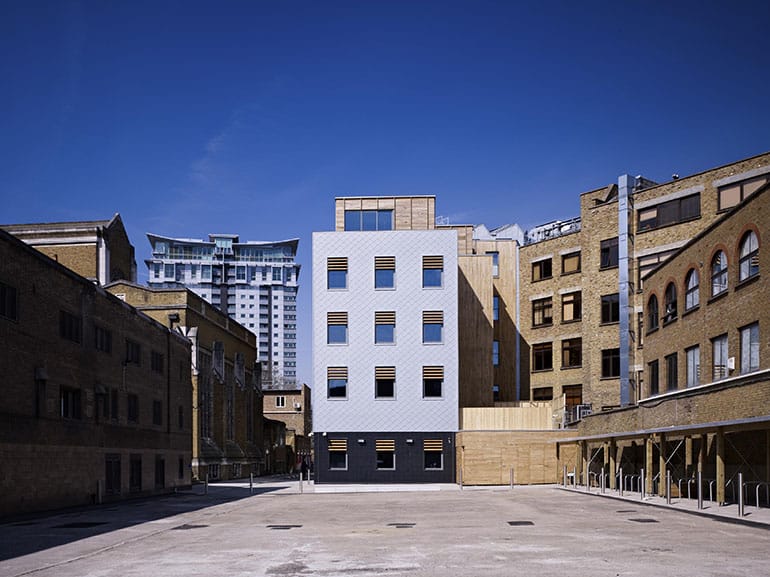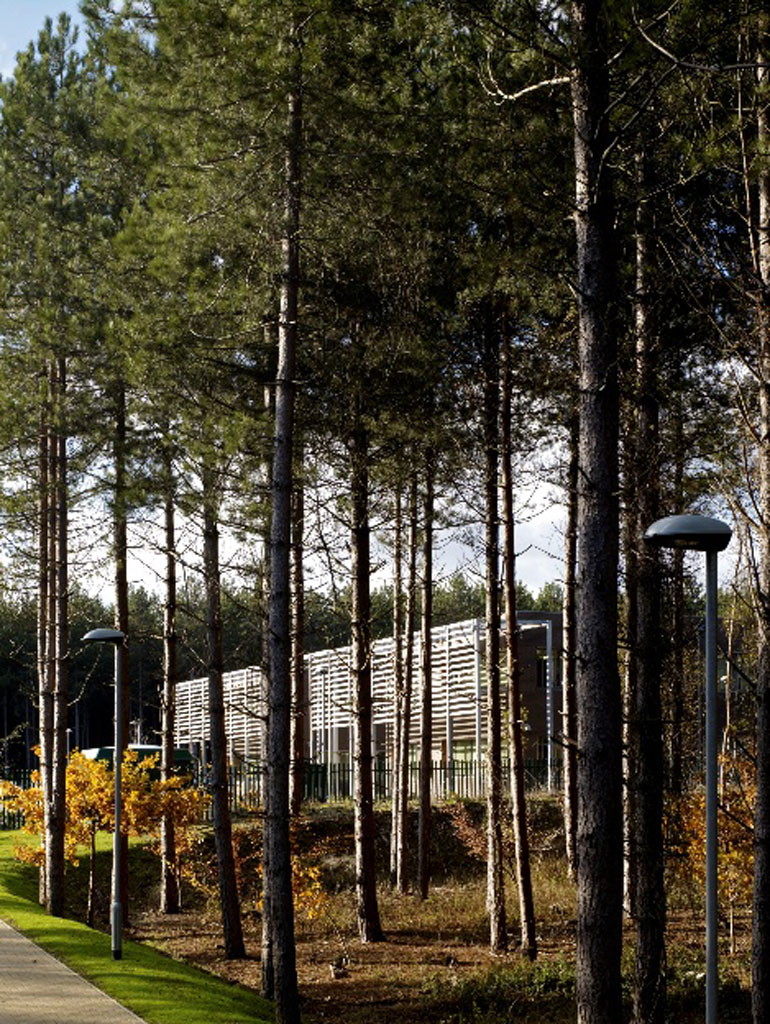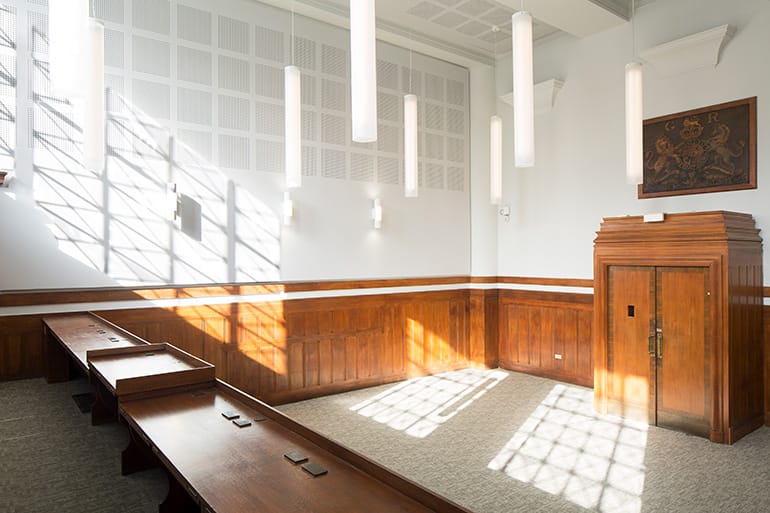
Kingston Magistrates Court
Black were appointed to rework a feasibility study for the conversion of the redundant magistrate’s court spaces into civic spaces for the registration of births, marriages and deaths, and create a home for the heritage archive. The introduction of a fresh set of eyes allowed more of the historic fabric to be reused and in the process created a collaborative link with our clients at Morley College.
Our assessment of the original main court spaces suggested that the layout, with the judge at the head of the room, could provide clues as to how the design should evolve. The adopted solution made the partners, whose marriage was being witnessed the focus of attention, giving them the same status as the judge who originally presided over the courtroom. Existing built in furniture to the perimeter of the rooms was retained and remodelled to suit the new function, and space created for the registrars and guests. Door lobbies that were due to be removed were retained, their function of keeping the space quiet as important to a civil ceremony as the judgement of the accused.
Inner rooms for court officials and detention cells were converted to private registry spaces and offices, whilst the former public toilets were fully remodelled. The refurbishment process that enabled accessible facilities to be introduced into these toilets unearthed a series of ceramic wall tiles designed by the eminent artist Edward Bawden who had also created murals for Morley College, leading to an art commission that brought the college together with the Royal Borough of Kingston to use the salvaged tiles in two new sculptural artworks.
Bringing our two clients together created new cultural links between the borough and college, a social value opportunity that may have been lost if the original feasibility study had not been challenged by Black and our heritage consultant.
Status: complete Aug 15
Contract Value: £3M
